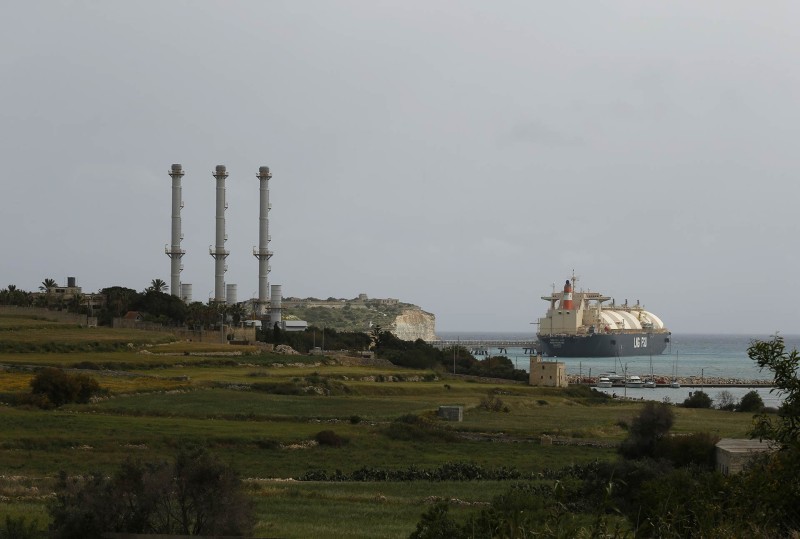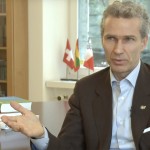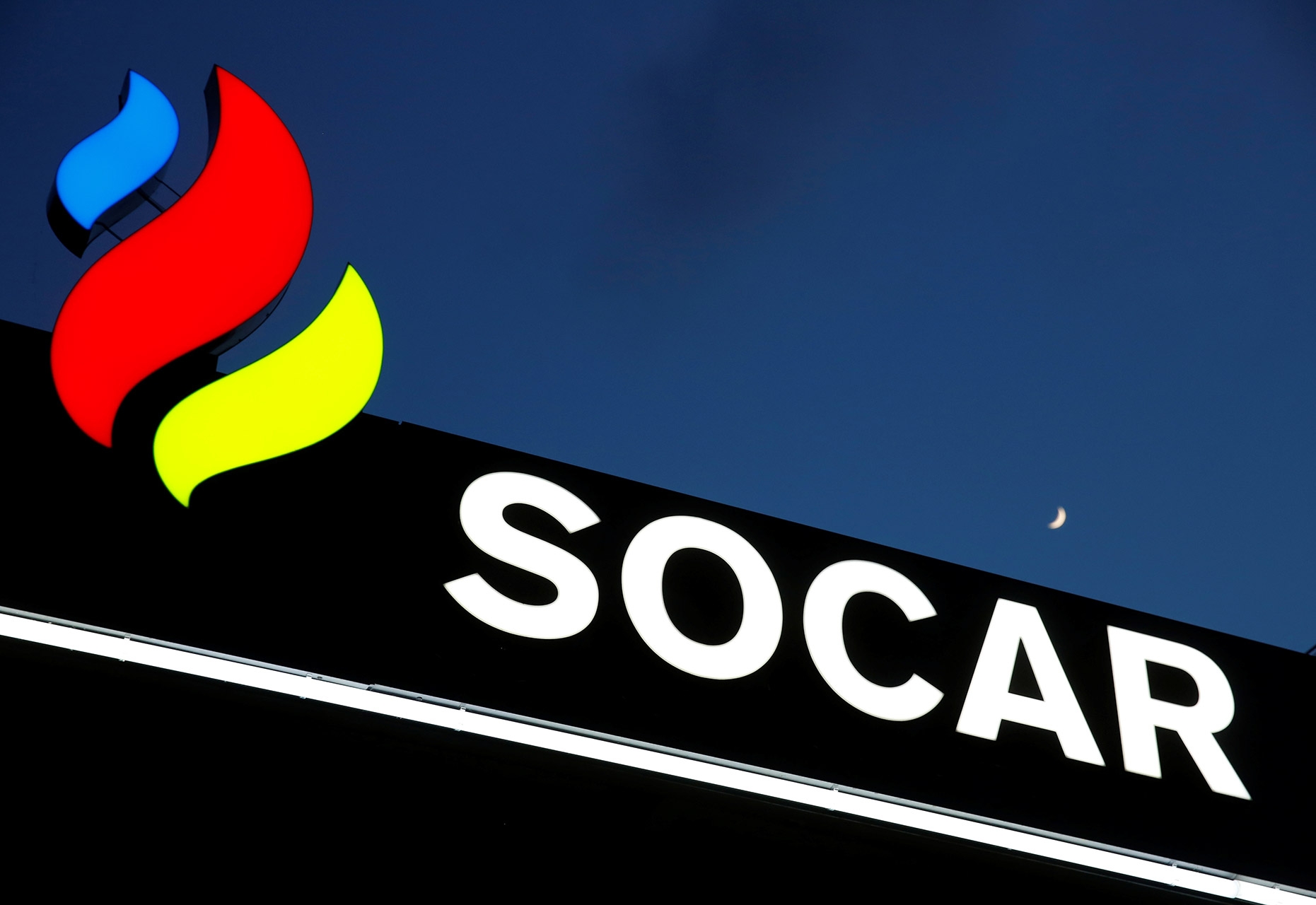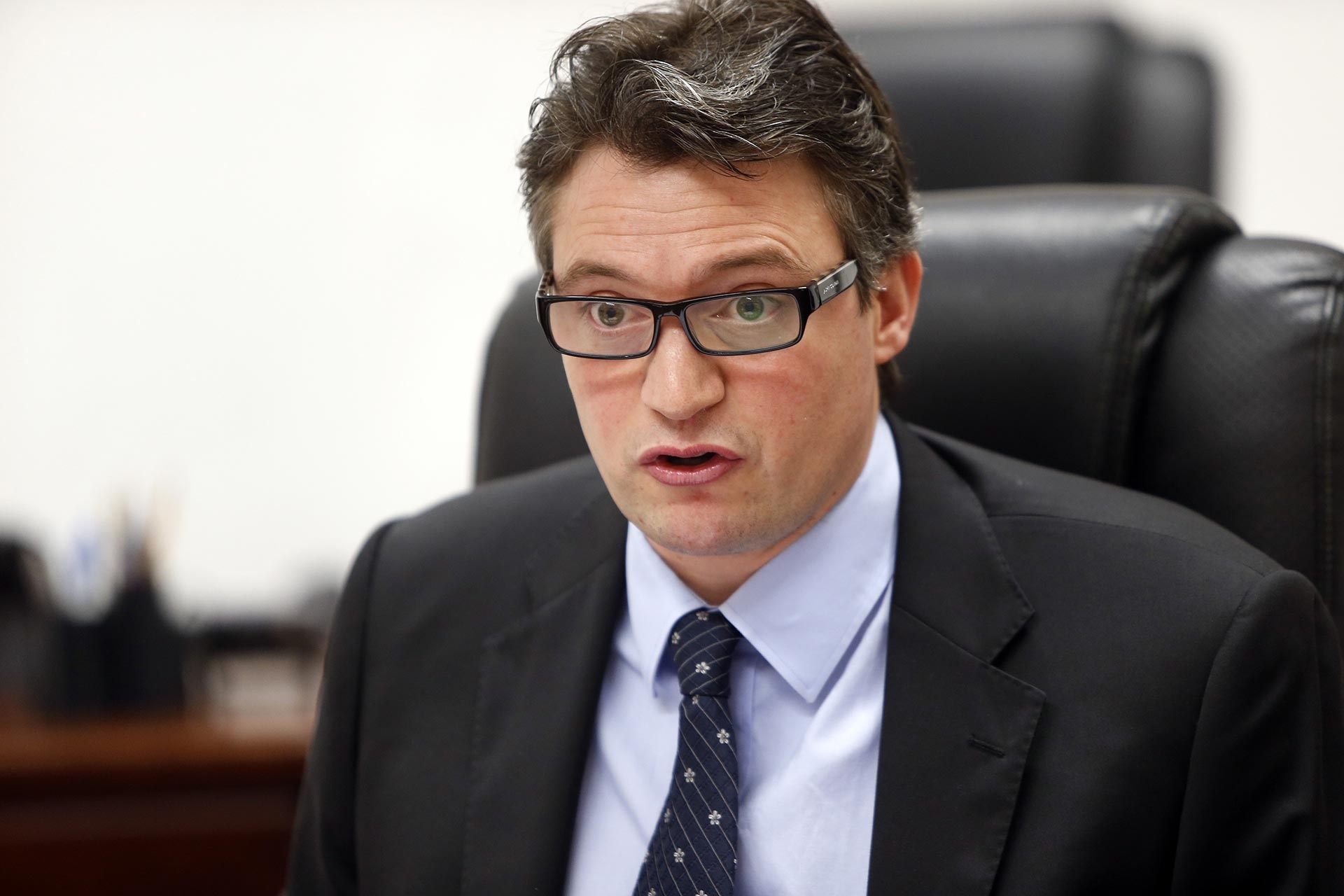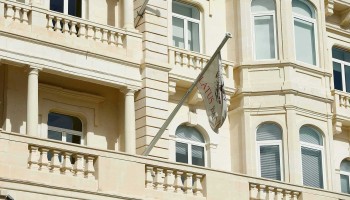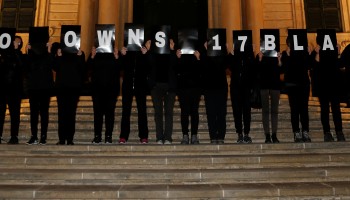Maltese taxpayers could be losing tens of millions of dollars per year in an energy deal with Azerbaijan, according to expert analysis of leaked files.
A whistleblower gave a cache of data to Daphne Caruana Galizia, the Maltese investigative journalist who was killed by a car bomb last October.
She was not able to publish her findings before her death. But the leaked material was then shared with the Daphne Project, which has been working to complete her reporting. The consortium of 45 investigative reporters from 18 news organizations in 15 countries, including the Organized Crime and Corruption Reporting Project (OCCRP) and the Guardian, was organized by Forbidden Stories.
Three energy experts in London have examined the files, which contain pricing information that Malta’s Prime Minister Joseph Muscat has so far refused to publish.
The material concerns a deal, worth about €1 billion, under which Malta has agreed to import all of the liquefied natural gas (LNG) needed to supply its power stations for the next 10 years from SOCAR, Azerbaijan’s state-owned oil and gas company.
Malta is “losing money hand over fist” on the contract, said an expert who agreed to speak on condition of anonymity, adding that the government should push to renegotiate.
The deal was signed in 2015 and deliveries began last April. Since then, through the end of March 2018, Malta has paid SOCAR at least €131.6 million (US$ 153 million) for its gas — at nearly twice open market rates.
SOCAR is owned by the Azerbaijani government, which human rights groups and other independent observers accuse of massive corruption, imprisoning journalists, and suppressing political opponents. President Aliyev’s administration has dismissed the allegations, calling then “biased, groundless, and provocative.”
The Daphne Project has already revealed that Azerbaijan’s ruling families used a Maltese bank to funnel millions of dollars into lucrative investments around the world.
Mind the Middleman
Azerbaijan may be a major oil and gas producer, but did not produce or trade LNG at the time the deal was signed. In fact, SOCAR is not even supplying the gas from its own reserves. Instead, it buys LNG from Shell, the global oil company, and then sells it straight on to Malta at a profit.
SOCAR does not actually handle the gas, organize its transportation, or add value through any physical process.
“If I was a Maltese taxpayer, I would want to know why such a poor deal was signed,” said Simon Pirani, a senior visiting research fellow at the Oxford Institute for Energy Studies.
Until now, Malta’s taxpayers were in the dark about the profits SOCAR was making on the deal, because the government has only published the gas contracts in redacted form. The leak contains the originals.
They show that while SOCAR is buying gas from Shell at a price linked to daily market rates, it resells it to Malta at a fixed rate.
Oil and gas prices tumbled between 2014 and 2016, and are only just beginning to recover. The cost of LNG is still well below the fixed price Malta is committed to paying.
That discrepancy is why Malta’s taxpayers are losing out — stuck paying a fixed price that is nearly twice the average market rate for the past year even as SOCAR buys cheaper gas from Shell. The fixed price period in the contract is set to last for five years.
It is estimated that, over the first year of the deal, SOCAR paid Shell $40 million less for the gas than the sum it charged Malta (see box).
A $40 Million Bargain for Baku
In theory, if Malta had dealt directly with Shell, it could have struck a better deal and saved money.
There is no evidence of wrongdoing by any of the parties involved in the information obtained by reporters. However, the lack of a public tender for the gas contract, and the absence of public information about its structure and costs, have prevented scrutiny and hampered debate over whether the government secured the best deal for the taxpayer, opposition politicians claim.
“There was a total lack of transparency on this contract,” said former Nationalist party leader Simon Busuttil.
“It took the government two years to publish it and even then, the juicy parts were blacked out. There is not the inexplicable involvement of SOCAR, when the gas could have been purchased directly from Shell at a cheaper price.”
A Complex Supply Chain
The leaked material concerns a company called Electrogas. Owned by SOCAR, the German engineering firm Siemens, and a trio of Maltese businessmen, Electrogas sits in the middle of the gas supply chain.
The company has played a key role in Malta’s transition from using fuel oil to cleaner, cheaper LNG for its power stations. LNG is compact and easy to transport. Crucially for the island nation, which has no gas pipelines connecting it to mainland Europe, it can be shipped in by sea.
In 2013, Malta held an open competition for a company to build LNG facilities at Delimara on the southern tip of the main island. The company would use them to import LNG, store it, convert the liquid back into gas, and pump it into turbines operated by Enemalta, the state-owned utility that supplies electricity to the country’s homes and businesses.
The winning bidder was also required to build turbines of its own to supply Enemalta with additional electricity. Electrogas ended up winning the tender in a public process in which 18 bidders had expressed an interest.
The leaked tender documents show that Enemalta requested a fixed price for the first five years. Because the price of the gas was included in the cost of the bid, there was no separate public tender for the LNG supply contract.
In 2015, Electrogas signed a series of deals under which it would buy all the gas Malta needed from SOCAR, and then sell a combination of gas and electricity from its own newly built turbine to Enemalta. Regular deliveries began in April 2017, after the power station was constructed.
The most recent delivery from Shell, on March 22, appears to have come from natural gas fields off Trinidad and Tobago aboard a tanker called the Maran Gas Apollonia.
“Hand over Fist”
Malta could not have foreseen the sustained oil and gas price crash which has come to make its deal with SOCAR look like a poor value. The rout began in January 2014 and continued for two years. Prices have still not fully recovered.
But three energy specialists who reviewed the contracts all expressed concern at the length of the fixed price period Malta is locked into.
Pirani, the energy expert from Oxford, called the arrangement “strange,” asking why Malta left itself “so little room to renegotiate.”
Two specialists who asked to remain anonymous said that Malta had been locked into poor terms; one of them said that a five-year commitment was unheard of.
“[SOCAR is] getting paid double by the Maltese utility,” said one of the specialists. “That’s a huge margin. … Malta should push to renegotiate that contract because they are losing money hand over fist.”
Tourism minister Konrad Mizzi steered through the project in his previous role as minister for energy. In a six page letter to reporters, he said his government’s initiatives had brought in hundreds of millions in new investment from corporations and banks. The switch from oil to gas had slashed electricity prices by 25 percent and improved air quality.
He said Malta’s energy sector had been “in desperate need of a complete overhaul,” with its state provider, Enemalta, in debt despite charging some of the highest prices per customer in Europe.
Enemalta’s financial woes were one of the “main reasons” for outsourcing the whole gas supply chain, said Mizzi.
The reforms had been shaped by advice from top international law firms and specialist consultants, he said, and had received financial backing from a consortium of leading banks.
Mizzi argued the five year fixed term was worth paying because “security of supply and price stability were paramount.”
SOCAR said that Electrogas, a company in which it holds a 33 percent stake, had been chosen as Enemalta’s partner in a “fair and open” tender process.
It said the price of gas had been determined by the requirements set by the government and Enemalta.
The European Commission, which says it was made aware of the pricing details, raised no objections and approved the deal in January 2017.
A spokesperson for the commission’s competition directorate, which approved the deal, said its role had been to check that Electrogas was not being overpaid by Enemalta, rather than inspecting the deal with SOCAR in isolation. It had concluded the rate of return for Electrogas was “in line” with similar projects.
However, among the leaked material is a report by a UK consultancy hired by Electrogas to analyze the costs in order to convince banks to invest. In the report, it questioned SOCAR’s involvement.
“The arrangement is unusual,” the report noted, “and typically one would expect the LNG supplier, in this case Shell, to contact directly with the project.”
Malta can try to renegotiate its agreement with SOCAR, as other countries have done. Lithuania reportedly secured a price cut from its supplier, Statoil, and the Italian utility Edison went to court to reduce the cost of its deal with Algeria.
Meanwhile, says Nationalist MEP David Casa, “we can conclude with certainty that this set-up is hugely detrimental to the Maltese taxpayer.”
